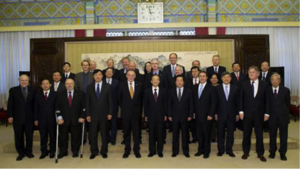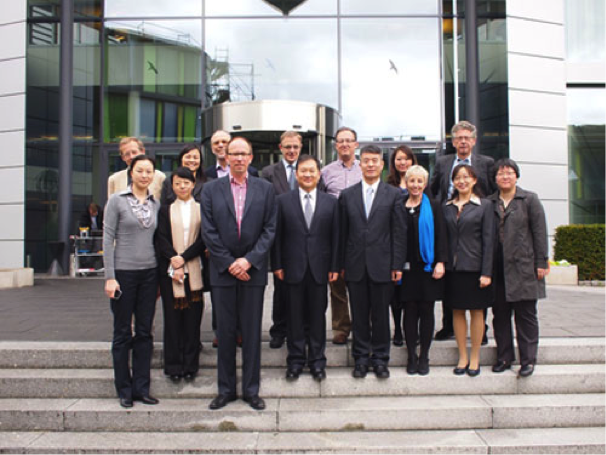
China Council for International Cooperation on Environment and Development (CCICED)
SUPPORTING THE CHINESE GOVERNMENT TO VISUALIZE SUSTAINABLE CONSUMPTION POLICIES
China is the largest consumer market in the world. Because of this fact, there is enormous potential to promote resource efficiency in China. To achieve the goal of sustainable development, sustainable consumption (SC) has been proposed as an essential focus area for policy makers. As China is currently undergoing a development transition, it is necessary to define what kinds of sustainable consumption patterns will work best for China and to map out the policy instruments that will be effective in facilitating the necessary changes.
Against this background, the China Council for International Cooperation on Environment and Development (CCICED) initiated the Task Force on Sustainable Consumption and Green Development (SC and GD) in September of 2012 to explore pathways toward achieving sustainable development in China. Michael Kuhndt, head of the CSCP, was appointed as the co-chair of the Task Force, together with CCICED Vice Secretary General Mr. Xu Qinghua. By facilitating a multinational dialogue on sustainable development, the Task Force of Sustainable Consumption and Green Development at the CCICED aims to develop practical policy recommendations to promote sustainable consumption in China.
Organizing knowledge exchange workshops
To integrate leading experience and practice in developing sustainable consumption policy recommendations, the project hosted a number of national and international knowledge exchange workshops.
As a component of the project the CSCP organized a workshop in Brussels, Belgium, entitled “Policy Initiatives for Sustainable Consumption & the Financing of Change” on 23 May 2013. The workshop received financial support from the German Federal Ministry for the Environment, Nature Conservation and Nuclear Safety. The aim of the workshop was to promote mutual learning between China and Europe respecting the development of sustainable consumption policy initiatives.
| In September 2013, the project will host the “Chinese Stakeholder Workshop on Sustainable Consumption and Green Development” in Beijing. This workshop will engage civil society stakeholders to discuss policy recommendations developed by CCICED Task Force and identify implementation barriers. By communicating directly with practitioners, this workshop will support enhanced public participation in sustainable consumption policymaking and improve effectiveness in future. |
Developing a year 2025 sustainable consumption roadmap for China
A technical report on international SC theories and cases will be developed as a reference document for China. Considering the development status of China, the Task Force will design a roadmap to achieve good living with sustainable consumption in China by the year 2025. This roadmap will analyse the main challenges and elaborate the opportunities and approaches to advance the key consumption domains of sustainable building, housing, food and mobility.
In November 2013 the co-chairs of the CCICED-task force will meet with the Chinese Premier Li Keqiang to report on recommendations for development strategy to support sustainable consumption. The final output of the Task Force will form a basis for future policymaking on sustainable consumption in China.
Role of the CSCP
Michael Kuhndt, head of the CSCP, acts as international co-chair of the CCICED-Task Force. Together with his Chinese co-chair counterpart, he will direct the CCICED-Task Force in its task to develop practical policy recommendations on sustainable consumption. The CSCP contributes to developing the CCICED-Task Force report on international practices and experiences with sustainable consumption and production. The CSCP also co-organizes workshops to promote knowledge exchange to support and refine policy recommendations.

For more information please contact:
Michael Kuhndt • Director of the CSCP
+49 (202) 459 58 20 • michael.kuhndt@scp-centre.org

